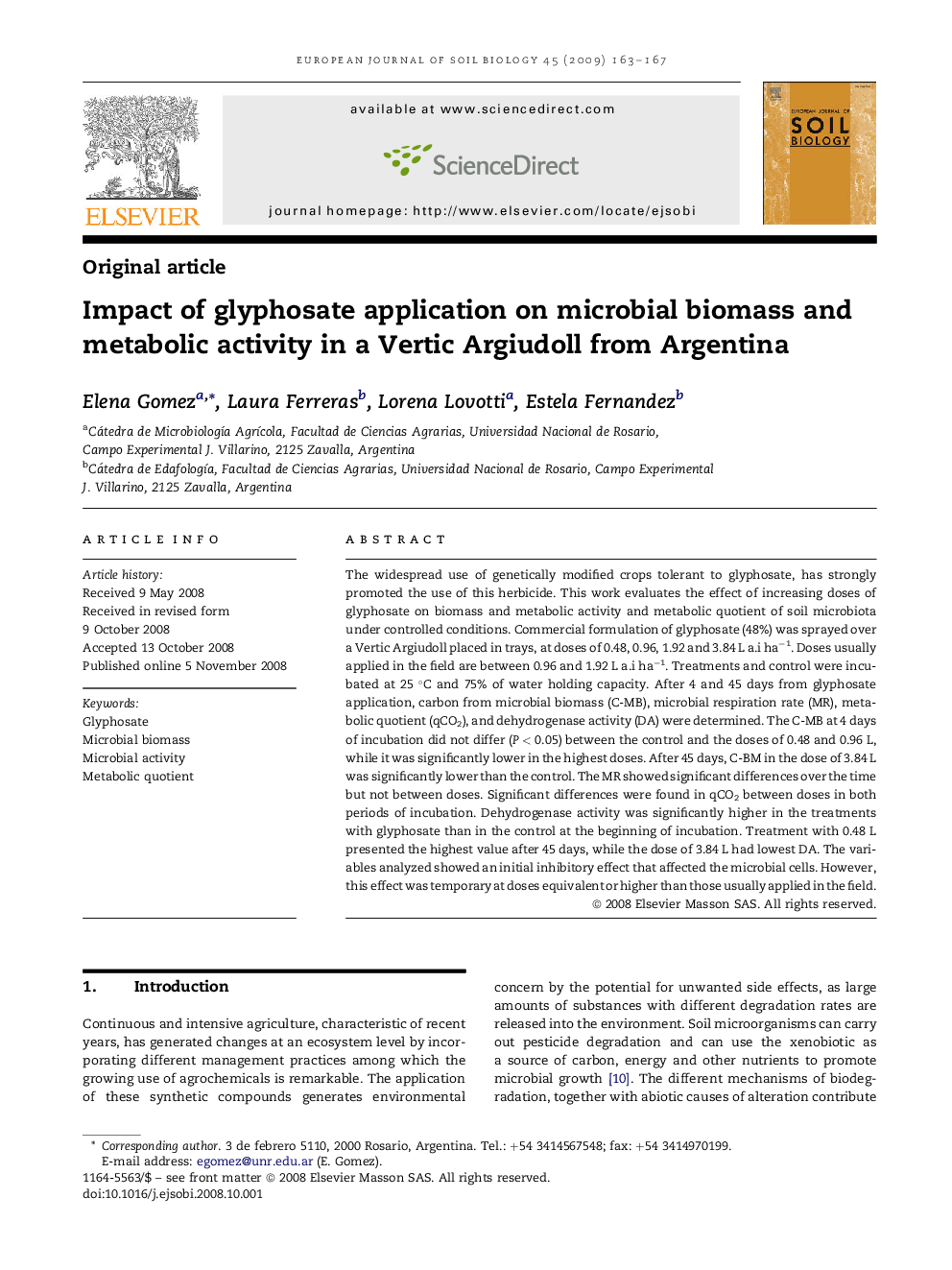| Article ID | Journal | Published Year | Pages | File Type |
|---|---|---|---|---|
| 4392229 | European Journal of Soil Biology | 2009 | 5 Pages |
The widespread use of genetically modified crops tolerant to glyphosate, has strongly promoted the use of this herbicide. This work evaluates the effect of increasing doses of glyphosate on biomass and metabolic activity and metabolic quotient of soil microbiota under controlled conditions. Commercial formulation of glyphosate (48%) was sprayed over a Vertic Argiudoll placed in trays, at doses of 0.48, 0.96, 1.92 and 3.84 L a.i ha−1. Doses usually applied in the field are between 0.96 and 1.92 L a.i ha−1. Treatments and control were incubated at 25 °C and 75% of water holding capacity. After 4 and 45 days from glyphosate application, carbon from microbial biomass (C-MB), microbial respiration rate (MR), metabolic quotient (qCO2), and dehydrogenase activity (DA) were determined. The C-MB at 4 days of incubation did not differ (P < 0.05) between the control and the doses of 0.48 and 0.96 L, while it was significantly lower in the highest doses. After 45 days, C-BM in the dose of 3.84 L was significantly lower than the control. The MR showed significant differences over the time but not between doses. Significant differences were found in qCO2 between doses in both periods of incubation. Dehydrogenase activity was significantly higher in the treatments with glyphosate than in the control at the beginning of incubation. Treatment with 0.48 L presented the highest value after 45 days, while the dose of 3.84 L had lowest DA. The variables analyzed showed an initial inhibitory effect that affected the microbial cells. However, this effect was temporary at doses equivalent or higher than those usually applied in the field.
